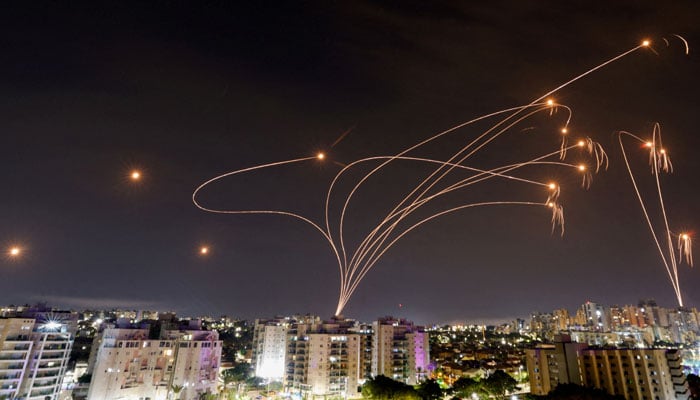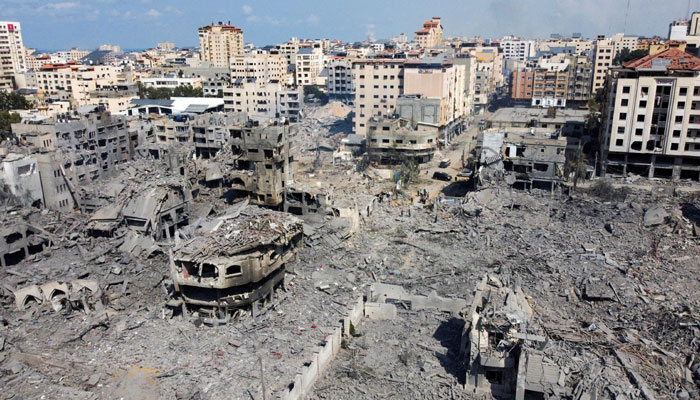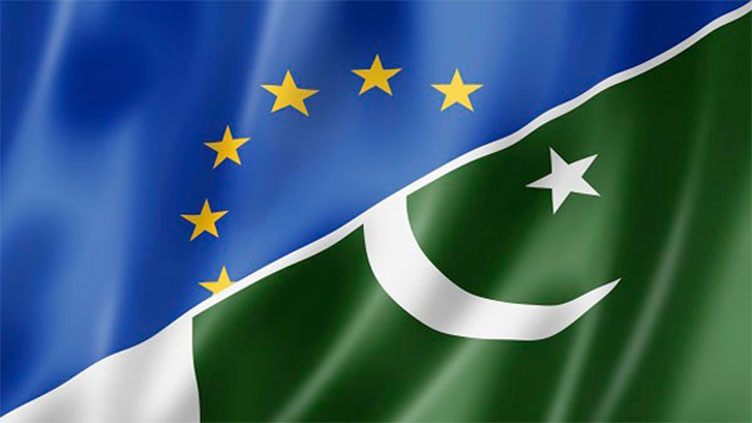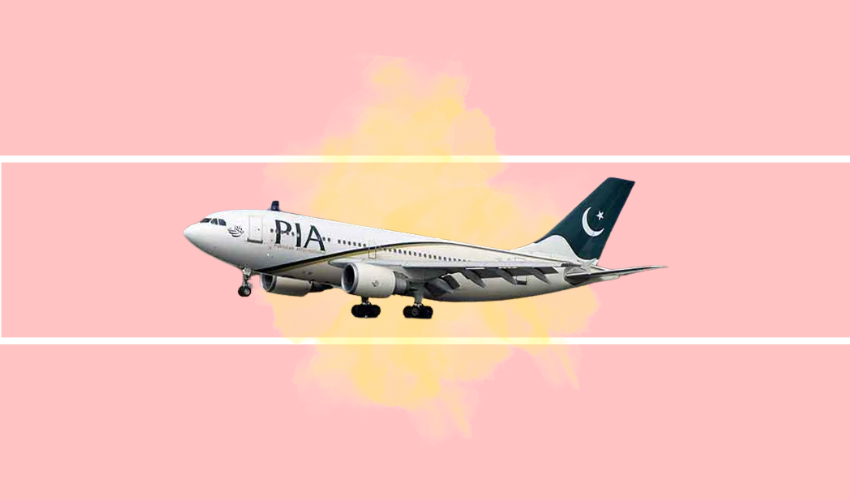World
Gaza to plunge into darkness within hours as Israel’s siege leaves Palestinians without food, fuel
Published
1 year agoon
By
Farwa
- Israel using banned white phosphorus bombs, says Palestine.
- Gaza ministry says over 4000 wounded in crowded coastal enclave.
- Hamas commander Mohammad Deif’s family martyred in airstrike.
As a result of the complete blockade imposed by Israeli authorities on the besieged territory, the Gaza Strip is likely to plunge into darkness “within hours” due to a lack of fuel for a power plant.
Palestine has accused Israel of using white phosphorus bombs against civilians in the Karama neighborhood of Gaza Strip as Tel Aviv vowed to escalate its response to an attack by Hamas with a ground offensive.
“The Israeli occupation is using internationally banned white phosphorus bombs against the Palestinians in the Karama neighborhood in northern Gaza,” the Palestinian Foreign Ministry said on X, formerly Twitter on Tuesday.
Israeli warplanes and artillery use internationally #prohibited_white_phosphorus, destroying #Al_Karama neighborhood in the northwest of Gaza City with a continuous series of airstrikes. There are casualties and wounded, while ambulances and civil defense vehicles are unable to… pic.twitter.com/ym7zfKqIBH
— State of Palestine – MFA 🇵🇸🇵🇸 (@pmofa) October 10, 2023
Rami Abdo, the founder of the European Observatory for Human Rights, posted a video clip on the X platform of what he said was Israel’s use of phosphorus bombs.
“Israeli military forces are using toxic white phosphorus [bombs] on densely populated areas northwest of Gaza City,” he wrote.
The New York-based rights group Human Rights Watch had earlier cited reports of Israel’s use of white phosphorus bombs in Gaza during past conflicts, according to Anadolu.
The use of white phosphorus weapons to generate a smokescreen and cover troop movements is legally accepted, but the 1980 Geneva Convention forbids its use in densely populated areas.
There was no comment from Israel on the claim.
The Israeli military said dozens of its fighter jets struck more than 200 targets overnight in a neighbourhood of Gaza City that it said had been used by Hamas to launch its unprecedented wave of attacks.
Gaza’s health ministry said at least 900 people have been martyred and 4,600 wounded in the crowded coastal enclave.
⚡️The regime is using what looks like Phosphorus munitions on civilian areas in Gaza pic.twitter.com/6N4d3Arjkh
— War Monitor (@WarMonitors) October 10, 2023
On Saturday, Hamas gunmen from the Gaza Strip rampaged through parts of southern Israel, in the deadliest Palestinian attack in Israel’s history.
Israeli public broadcaster Kan reported the weekend death toll had reached 1,200.
The victims were overwhelmingly civilians, gunned down in homes, on streets or at an outdoor dance party. Scores of Israelis and others from abroad were captured and taken to Gaza as hostages, some shown on social media being paraded through the streets.
Hamas said the attack was in response to Israeli violations in the flashpoint Al-Aqsa Mosque complex in occupied East Jerusalem and increased settler violence.
‘Gaza power plant to shut down within hours’
Al Jazeera on Tuesday quoted the Government Media Office in Gaza as saying that the Gaza Strip is facing an imminent humanitarian catastrophe, with the power plant shutting down completely within hours due to the depletion of fuel.
“This threatens to plunge the Strip into complete darkness and make it impossible to continue providing all basic life services, all of which depend on electricity, and it will not be possible to operate them partially with generators in light of the prevention of fuel supplies from Rafah Gate.
“This catastrophic situation creates a humanitarian crisis for all residents of the Gaza Strip, which is further exacerbated by the occupation’s continued aggression and destruction of entire residential neighborhoods with hundreds of tonnes of explosives, and the bombing of citizens’ homes over their heads, in what can be described as the dirtiest crime of collective punishment against defenseless civilians in modern history.
“[The international community] needs to move quickly to stop this crime against humanity and this multi-form mass murder, and the need to provide the Gaza Strip with all means of life, and not abandon it. Its residents are hostage to the killing tools used by the occupation.”
‘Humanitarian crisis’
The United Nations Secretary General Antonio Guterres on Monday warned that the humanitarian situation in Gaza was already “extremely dire before these hostilities” and “now it will only deteriorate exponentially.”
Human Rights Watch (HRW) criticised Israel’s call for a complete siege as a form of “collective punishment” and a “war crime.”
The World Food Programme said Sunday that while most shops in the territory maintain “one-month stocks of food,” these stocks “risk being depleted swiftly as people stock up in fear of a prolonged conflict.” Repeated electricity cuts also risk food spoilage, it said.
The situation remains desperate for Nadine and her family.
“We have no water; it was cut off yesterday (Monday). We barely get electricity or internet, and we can’t leave the house to buy food as it’s getting more and more dangerous.” Whenever she hears aircraft, she said, “we hide under the table,” reported CNN.
Over 260,000 people displaced in Gaza
Over 260,000 people have been forced to flee their homes in the Gaza Strip, as heavy Israeli bombardments from the air, land and sea continue to hit the Palestinian enclave, the United Nations said.
“Over 263,934 people in Gaza are believed to have fled their homes,” said UN humanitarian agency OCHA said in an update Tuesday, warning that “this number is expected to rise further”.
It said that around 3,000 people had been displaced “due to previous escalations”, prior to Saturday.
The bombing campaign has destroyed more than 1,000 housing units, and 560 have been so severely damaged they are uninhabitable, OCHA said, citing Palestinian authorities.
Among the displaced, nearly 175,500 people sought shelter in 88 schools run by the UN agency supporting Palestinian refugees, UNRWA, it said.
More than 14,500 others had fled to 12 government schools, while close to 74,000 were estimated to be staying with relatives and neighbours or seeking shelters in churches and other facilities.
The number of displaced people inside of Gaza “represents the highest number of people displaced since the 50-day escalation of hostilities in 2014,” it said.
“Meeting basic needs is becoming increasingly challenging for those who have not been displaced,” OCHA warned.
Israel has imposed what it called a “complete siege” on the already blockaded Gaza Strip, cutting off food, water, fuel and electricity — a move that UN Secretary-General Antonio Guterres warned would worsen an already dire humanitarian situation.
Airstrike on Hamas commander’s home
According to Israeli media reports, the Israeli military launched an airstrike on the home of relatives of Mohammad Deif, the Hamas military commander, in a Qizan an Najjar neighborhood in Khan Younis, a southern city in the Gaza Strip.
Citing Palestinian reports, a number of Hebrew media say Deif’s father, brother, his son, and the brother’s granddaughter were martyred in the attack.
According to Al Mayadeen, an unknown number of relatives were in the home in Khan Younis and were trapped in the rubble.

14 Americans killed
In a speech on Tuesday Biden confirmed at least 14 Americans were killed, and others were missing.
The US has sent an aircraft carrier and other warships to the eastern Mediterranean as part of efforts to deter an expansion of the conflict and is also providing other assistance, including sharing intelligence with Israel.
Relatives of Americans believed held in Gaza called on the Biden administration to bring them home safely.
Western powers and many other nations have reported citizens killed, abducted or missing. These include: Brazil, Cambodia, Canada, Ireland, Mexico, Nepal, Panama, Paraguay, Russia, Sri Lanka, Thailand and Ukraine.
Hamas has held around 150 captives since its ground incursion, among them children, elderly and young people captured at a music festival where around 270 died.
On Monday, Hamas warned it would start killing hostages every time Israel launches a strike on a civilian target in Gaza without warning. French President Emmanuel Macron called the threat “unacceptable blackmail.”
Fear and chaos reigned among the 2.3 million Palestinians living in the coastal territory that has been hammered by thousands of Israeli munitions.
Hamas said the strikes killed two of its senior figures: Zakaria Muammar led its economics section, and Jawad Abu Shamala coordinated ties with other Palestinian factions.
Israel´s army also announced their deaths.

Four Palestinian journalists were also killed in Israeli air strikes on Gaza City, media unions and officials said.
EU opposes complete siege
Israel on Monday imposed a total siege on Gaza, which it has already blockaded for years, cutting off the water supply, food, electricity and other essential supplies.
European Union foreign ministers urged Israel not to cut such essentials, and called for humanitarian corridors for those trying to flee.
UN human rights chief Volker Turk said such sieges are prohibited under international humanitarian law.
Medical supplies, including oxygen, were running low at Gaza´s overwhelmed Al-Shifa hospital, said Mohammed Ghonim, a doctor in the emergency room.
Israel reeling from surprise attack
Israel has been left reeling by Hamas´s unprecedented ground, air and sea assault that began with thousands of rockets, likening it to the 9/11 attacks on the US.
In the aftermath, soldiers who were on guard duty along the hi-tech security barrier around Gaza recounted how the attack began with an effort to cripple observation cameras and communications.
“They took us by surprise and we weren´t ready for it,” a lookout soldier said in testimony posted on Instagram.
Israel faced the threat of a multi-front war after three days of clashes on the northern border with Lebanon.
For the first time since the Hamas attack, there was an exchange of fire between Israel and forces in Syria, after Israel´s military said munitions were fired towards the Golan Heights it has occupied since 1967.
Mourners in the southern Lebanese village of Khirbet Selm carried two caskets, draped in yellow Hezbollah flags, with the bodies of two fighters it said were killed in Israeli strikes a day earlier. A third fighter was also killed, the Iran-backed Hezbollah movement said.
On Tuesday, the Ezzedine al-Qassam Brigades claimed a fresh salvo of rocket fire from south Lebanon towards Israel, the Israeli army said, adding it retaliated with artillery fire.
“It´s like a state of war,” said Yaakov Regev, sipping coffee at a petrol station in northern Israel, a few kilometres from the Lebanon border.
Unrest has also surged in the West Bank, where 15 Palestinians have been martyred since Saturday.
Netanyahu, the veteran leader at the helm of Israel´s hard-right coalition, has called for an “emergency government of national unity” after his administration´s proposal for judicial reforms split the nation and even its military this year, before the war brought the nation closer together.
You may like
-


Maintaining Fertiliser Price Stability: The Need for a Continuous Gas Supply to the Fertiliser Sector
-


Fifth Straight Cut: PM Applauds SBP’s Policy Rate Reduction
-


GHQ Attack Case: Prosecution Seeks Bail Cancellation of CM KP & Other Accused, Indicts 9 More
-


Improving Economic Relations: The United States and Pakistan Agree to Expand Their Bilateral Collaboration
-


Solarisation Initiative: Balochistan’s Tubewell Solarisation Steering Committee Gathers
-


The prime minister will represent Pakistan at the D-8 summit in Cairo, Egypt.
Business
Nineth round of political talks between Pakistan and the EU centers on trade and security
Published
10 months agoon
By
Farwa
In their ninth round of political dialogue, which took place here on Wednesday, Pakistan and the EU discussed all aspects of their bilateral relationship, with a particular emphasis on the Strategic Engagement Plan (SEP), trade and development cooperation, security, climate action, migration, and mobility.
The team from Pakistan was led by Foreign Secretary Muhammad Syrus Sajjad Qazi, while Enrique Mora, Deputy Secretary General of the European External Action Service, represented the EU.
Significant local and international happenings were also covered.
The two parties expressed satisfaction with the positive direction of the relationship and decided to keep working to expand and deepen bilateral ties between Pakistan and the EU in all areas of shared interest. They will do this by routinely convening institutional mechanism meetings and carrying out follow-up tasks.
The two sides acknowledged the significance of bilateral relations between Pakistan and the EU, concurring that frequent high-level meetings have given the relationship new life and emphasized the need for close communication and collaboration in the face of a geopolitical environment that is changing quickly.
In order to bring about diversification and sustainability in trade ties between Pakistan and the European Union, the Foreign Secretary emphasized the need for deeper collaboration with key stakeholders on both sides, acknowledging GSP Plus as a successful model of trade for development and mutually beneficial cooperation.
The two parties also decided to investigate fresh prospects under the EU’s major initiatives, Horizon Europe and the Global Gateway Strategy.

Jibran Baloch, a flight attendant, is the second PIA air hostess to vanish this month; she was scheduled to take a Toronto trip from Karachi and then left the hotel.
Flight 782 failed to arrive for its planned return duty on February 29. Jibran Baloch, a flight attendant, is the second air hostess to go this month.
When staff members searched Jabran Baloch’s room, they discovered that he had fallen. Another missing person from the hotel a few days earlier was a female air hostess. In just a few months, almost 12 air hostesses who were assigned to flights to Toronto had vanished.
A Pakistan International Airlines (PIA) flight hostess is said to have vanished from her job in Canada earlier this month.
When Maryam Raza, who was supposed to be on aircraft PK 782 from Pakistan to Toronto, neglected to show up for work on the return trip, PK 784 from Toronto to Karachi, the event became public knowledge. According to those with knowledge of the situation, after PIA’s hanging uniform was found in her room, a letter with the words “Thank you, PIA” was found next to it.
This is the third instance of PIA flight attendants’slipping’ while on duty that has been documented this year; two of the cases involve women.
The efficacy of these procedures has not increased despite steps taken to prevent similar instances, such as obtaining the passports of flight attendants assigned to Toronto flights.
Pakistan
China “agrees” to transfer $2 billion in debt to Pakistan.
Published
11 months agoon
By
Farwa
ISLAMABAD China has “agreed” to roll over a $2 billion loan to Pakistan, according to sources cited by ARY News, which is a big milestone.
Sources inside the ministry of finance claim that the $2 billion loan will be rolled over under the current terms prior to its maturity date.
Less than 2 percent interest will be charged on the $2 billion in Chinese debt that is being deposited, according to sources.
According to reports, the $2 billion debt’s maturity period will conclude on March 23, 2024, and an additional $2 billion will be rolled over for a year.
It is important to note that as of the end of November in FY2023–24, Pakistan’s overall debt load was at an astounding Rs 63,399 trillion.
Over Rs12.430 trillion more was borrowed by the nation during the PDM and caretaker government’s mandate.
With domestic loans totaling Rs40.956 trillion and foreign loans totaling Rs22.434 trillion, Pakistan’s total debt load increased to Rs63.390 trillion.
China postponed paying Pakistan’s $2 billion debt for two years, starting in July 2023. Regarding the delay in debt recovery, Pakistan received an official letter from China Eximbank.
Pakistan will return the debt in accordance with the terms of the deal with China and was also spared from paying extra interest on the loan. According to further sources, all 31 loan agreements were extended over the original date of July 21, 2023, to June 30, 2025.


Maintaining Fertiliser Price Stability: The Need for a Continuous Gas Supply to the Fertiliser Sector

Fifth Straight Cut: PM Applauds SBP’s Policy Rate Reduction

GHQ Attack Case: Prosecution Seeks Bail Cancellation of CM KP & Other Accused, Indicts 9 More

Barwaan Khiladi: Kinza Hashmi discusses her role as Alia

Bannu Cantonment Board CEO Bilal Pasha ‘commits suicide’

Snap launches tools for parents to monitor teens’ contacts

Learn First | How to Create Amazon Seller Account in Pakistan – Step by Step

Sajjad Jani Funny Mushaira | Funny Poetry On Cars🚗 | Funny Videos | Sajjad Jani Official Team

